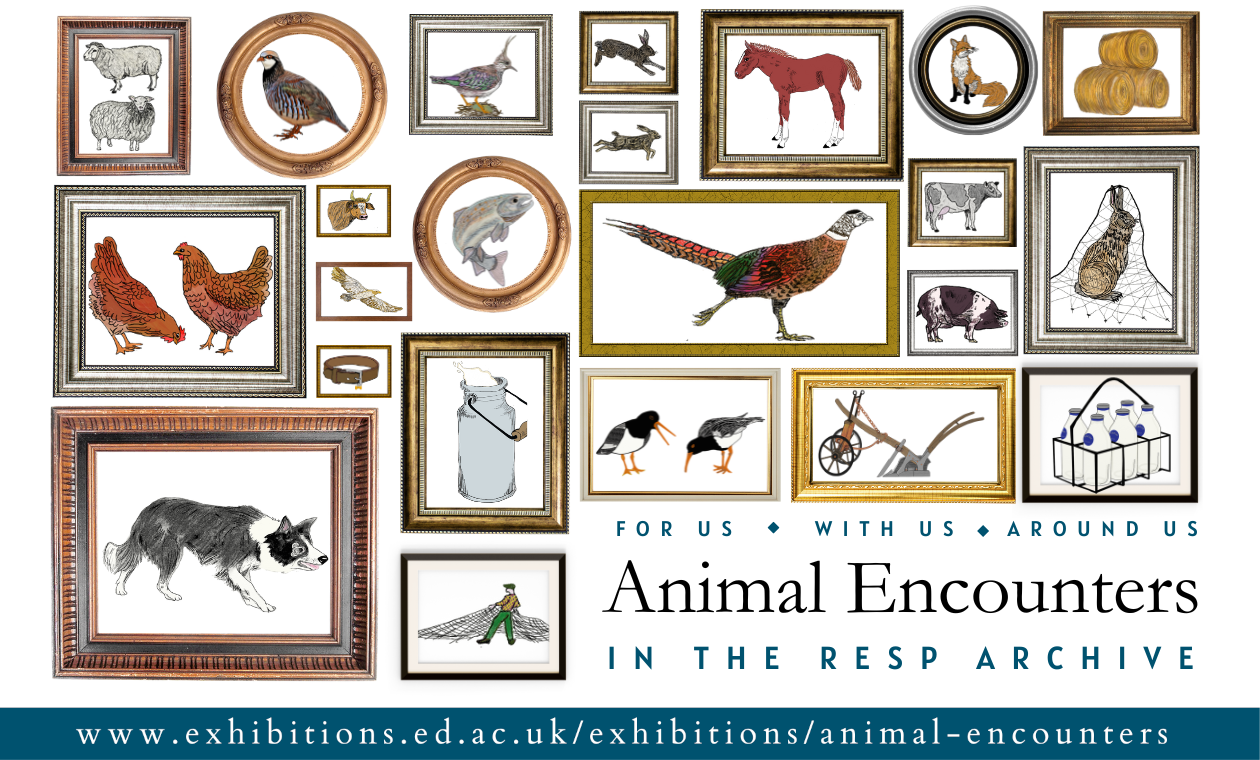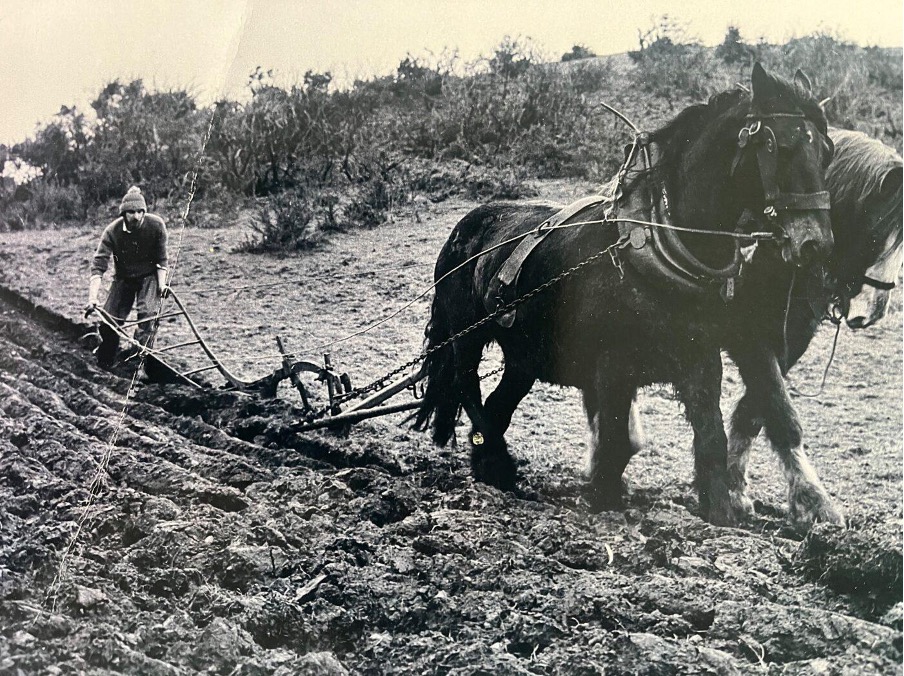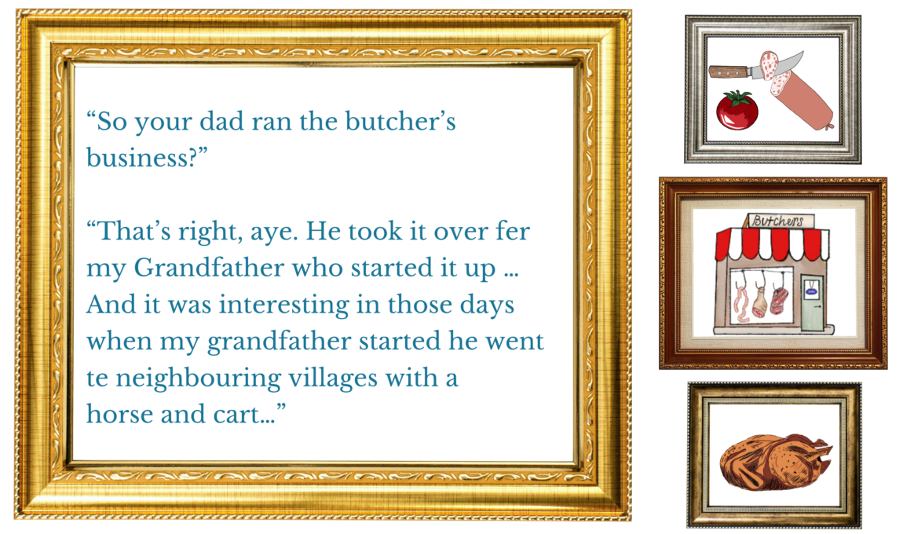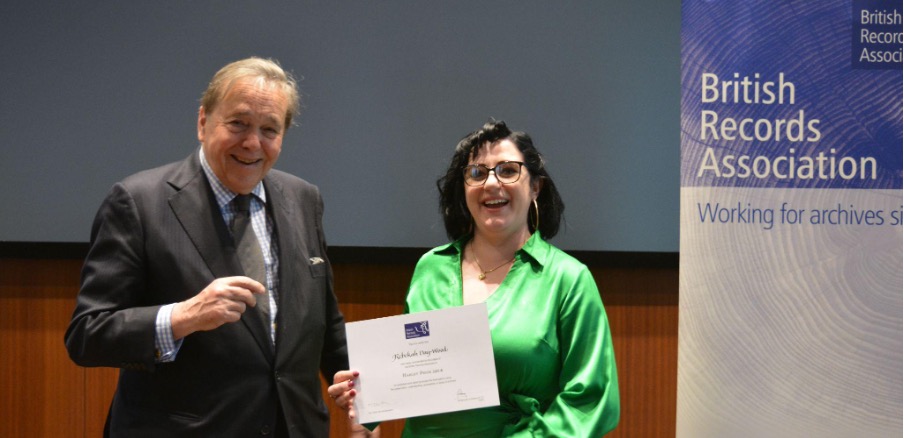On Tuesday the 29th of April 2025, I attended the British Records Association Harley Prize presentation and annual Maurice Bond Lecture on the 29th April 2025. I received a ‘Highly Commended’ certificate for the online exhibition ‘Animal Encounters’ – I curated and produced original illustrations for this exhibition while employed as a Curatorial Intern with the Regional Ethnology of Scotland Project (RESP). I completed the internship while studying for my MSc in Medieval History at the University of Edinburgh.

It was a privilege to delve into the RESP archives, which aim to “make widely available primary source material that illustrates everyday life and society in Scotland, past and present.” The RESP works with communities across Scotland to collect material relating to local life, endeavouring to represent people from all parts of society in their born-digital archive. This is achieved by the European Ethnological Research Centre, who support volunteers with training to conduct interviews with members of the community. Volunteer fieldworkers sit down with an individual and ask them to share stories and memories from their life. The recordings of these interviews are publicly available and free to download on the RESP website, with many accompanied by transcription and photographs too.

Caption: Photograph ofLogan Paterson using a traditional horse-drawn plough in a field. 1970s, Dumfries and Galloway. Used with permission from David Paterson.
Showcasing audio recordings, images and videos from the RESP archive, the ‘Animal Encounters’ exhibition highlights how connections between humans and animals have shifted in Scottish society over the past 50 years, reflecting on the development of wider cultural and environmental concerns. By selecting the accessible and interesting subject of ‘animals,’ the exhibition provides a window into the RESP archives and encourages audiences to consider how ethnography, oral-history and born-digital archives might bear witness to the usually voiceless groups in our society, such as animals.
The exhibition provides both a timely and evergreen resource for educators, researchers, students and anyone interested in local and social history; encouraging discussion about the changing relationship between Scotland’s people and the natural environment.
The aims of the work carried out by RESP and the exhibition in particular, are innovative examples of how research into Scotland’s past and it’s people remains a relevant topic that can provide insight into our understanding of how history is made, recorded, interpreted, and accessed today.

Caption: Quote from Logan Paterson, interviewed by Edward (Ted) Cowan 25 April 2013, New Galloway.
Reference: EERC/DG/DG29/1. Illustrated by Rebekah Day-Wood 2024.
A Shared Past
Past president and long time member of the Scottish Society for Northern Studies, the late Prof. Ted Cowan contributed hundreds of hours worth of recordings to the RESP project, with portions of the conversations he captured featured throughout the online exhibition. Noted in the SSNS obituary for possessing an esteemed ‘oratorial presence,’ Ted’s voice does not take centre stage in the RESP recordings but rather provides guidance to the interview subject, encouraging them to describe the memories and stories of their lives – demonstrating Ted’s ability to observe and reveal parts of Scottish history whose access is unintentionally restricted, only accessible when coaxed out of one’s memory.
Fellow of the SSNS Dr Margeret Mackay has also contributed to the development of the RESP, writing in her 2013 publication A Compendium of Scottish Ethnology Volume 1: “Evidence from non-written sources, from the material culture and from oral testimony, local and family history, contributes in unique ways to an understanding of the past and the present.”
The involvement and sentiment of these celebrated members of the SSNS community is testament to the importance of supporting ethnographic enquiry into the history of Scotland and its people. Being given the opportunity to attend the Harley Prize in person allowed me to promote the value and relevance of Scotland’s archives and social history to a national and highly-engaged audience. I am incredibly grateful to both RESP and the SSNS for providing support to enable this attendance.
- Rebekah Day-Wood, 16 May 2025

